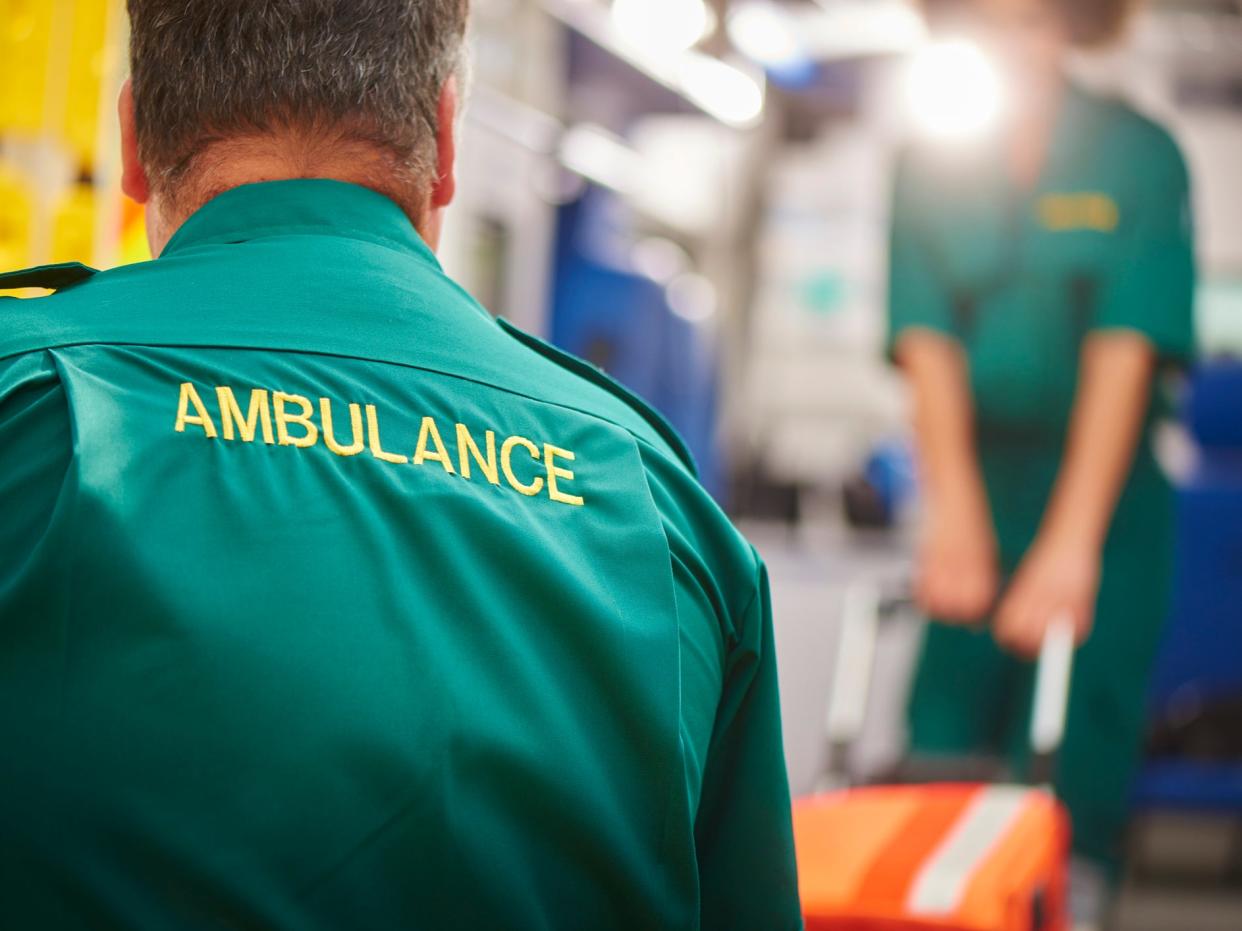Paramedics left in tears from ‘unsustainable demand’, warns union

Paramedics are being left in tears at the end of stressful shifts, with some forced to work five hours over a typical 12-hour shift, union bosses have warned.
In a letter to ambulance trust chief executives, seen by The Independent, Unison officials have warned the health of paramedics and 999 call centre staff is being put at risk because of the “unsustainable demand” on the NHS.
The letter comes after weeks of revelations in The Independent over the summer crisis in emergency care demand on the NHS which has seen hospital accident and emergency departments overwhelmed and ambulance services unable to answer 999 calls quickly, with hundreds of people a day waiting hours for an ambulance.
All 10 ambulance trusts across England were operating at their highest level of demand last week. This is what used to be known as a black alert. Some like London have been at this level since June. West Midlands Ambulance Service dropped back to level three but nine out of 10 trusts are still under “extreme pressure” demand.
Now Unison has warned ambulance chiefs that the pressure is taking its toll on their workforce.
The letter to Daren Mochrie, chair of the Association of Ambulance Chief Executives (AACE) says more action is needed to safeguard staff from the pressure they are under.
It detailed staff were missing meal breaks, facing long queues outside hospitals and finishing their shifts late with increasing numbers going off sick.
Examples Unison said staff had raised including one team working five hours beyond their shift end and having to travel over 100 miles after they were off-duty.
It added staff in call centres were “crying at the end of their shifts because of stress, low morale and lack of breaks. Some are spending hours queuing in A&E department corridors waiting to hand over patients on stretchers to hospital staff.
It said one service had 400 calls outstanding at one stage with emergency call handlers starting shifts with ambulances needed at over 100 incidents. In some cases Unison said patients had waited over 24 hours for ambulances to arrive.
Other issues included timewasting 999 calls from the public which included requests for paramedics to come to a house because “someone couldn’t reach their TV remote control” while another caller said they were too hot and couldn’t turn their heating off.
Unison told the chief executives: “This is all having a terrible impact on morale, as well on the health and wellbeing of ambulance staff.
“Ambulance staff have been at the forefront of the Covid response, working under levels of pressure never seen before.”
It said ambulance trusts must ensure staff take their breaks and ensure staff are not working excess hours because of overtime.
At the weekend North West Ambulance Trust offered staff enhanced pay to work extra shifts because of concerns it would not have enough people to cope.
Last month, NHS England said it was giving ambulance trusts a share of £55m to help recruit extra staff including call handlers to work in call centres.
The boss of West Midlands Ambulance Service, Anthony Marsh, has told his staff there is not enough staff to answer calls and delays at hospitals were without doubt causing harm to patients.
Unison said it believed the current level of demand was “foreseeable” and more government investment is still needed.
Deputy head of health Helga Pile said: “Ambulance workers have faced exceptional pressures over the past 17 months.
“It’s not surprising many have reached burnout. They cannot be left to just carry on doing excessive hours without proper breaks and rest between shifts.
“Employers must act swiftly by doing all they can to limit the unprecedented pressures on staff. Additional welfare support is needed, and the government should make this a top priority.”
A spokesperson for AACE said it had received the letter from the union adding: “These were discussed in a recent meeting of our National Ambulance Service Partnership Forum and AACE is currently drafting a response to the Unison letter.
“AACE continues to work with our member trusts and with relevant national bodies to highlight the current pressures on ambulance services and seek additional support for the sector and our highly professional and hardworking staff at this challenging time.
“As always we are committed to supporting trusts to do everything possible to support and improve the health and wellbeing of ambulance staff across the UK.”
Read More
Mental health patient kept in an ambulance outside hospital for over 12 hours
Abusive man jailed for attacking and threatening ambulance staff 40 times

 Yahoo News
Yahoo News 
